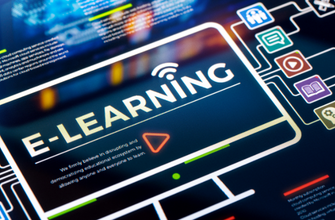This hands-on course provides test engineers and test managers with the essential ideas, processes, tools and skills they need in order to set themselves on a path for true testing professionalism.
Course is accredited by the ASTQB in 2024 and follows the ISTQB Foundation Level Syllabus - CTFL 4.0.
The Foundation Level qualification is suitable for anyone who needs to demonstrate practical knowledge of the fundamental concepts of software testing, including people in roles such as testers, test analysts, test engineers, test consultants, test managers, user acceptance testers and software developers.
It is also appropriate for individuals who need a basic understanding of software testing, including project managers, quality managers, software development managers, business analysts, IT directors and management consultants.
English knowledge
This training is also available in LIVE course format, in Hungarian and in English!
This e-learning course includes:
-
Three months of unlimited access to the online course
-
A downloadable electronic copy of the complete set of course materials. No expiration to access. Digital rights management and intellectual property rights protections apply.
-
Sample exam questions throughout the course
-
ISTQB Foundation Level Syllabus and the glossary of terms used in Software Testing produced by members of the ISTQB
-
Examples and exercises including solutions
-
Course completion certificate (often used for employer reimbursement)
The objectives of the course are the follows:
- Review the major test design techniques with lecture and exercises
- Methodology behind a successful testing program and covers a wide range of issues, from those related to the individual tester to those related to the testing department as a whole
- The testing process is presented, both through theory and hands-on exercises that follow an example project, including the difficult tasks of tracking and presenting tests results
- Creation of a test environment and test automation is also covered, along with system development lifecycles and how they affect testing

Three months of unlimited online access is provided with the course. Each section includes sample exam questions and exercises are included for main techniques.
Course Outline:
1. FUNDAMENTALS OF TESTING
1.1. What is Testing?
1.1.1. Test Objectives
1.1.2. Testing and Debugging
1.2. Why is Testing Necessary?
1.2.1. Testing’s Contributions to Success
1.2.2. Testing and Quality Assurance (QA)
1.2.3. Errors, Defects, Failures, and Root Causes
1.3. Testing Principles
1.4. Test Activities, Testware and Test Roles
1.4.1. Test Activities and Tasks
1.4.2. Test Process in Context
1.4.3. Testware
1.4.4. Traceability between the Test Basis and Testware
1.4.5. Roles in Testing
1.5. Essential Skills and Good Practices in Testing
1.5.1. Generic Skills Required for Testing
1.5.2. Whole Team Approach
1.5.3. Independence of Testing
2. TESTING THROUGHOUT THE SOFTWARE DEVELOPMENT LIFECYCLE
2.1. Testing in the Context of a Software Development Lifecycle
2.1.1. Impact of the Software Development Lifecycle on Testing
2.1.2. Software Development Lifecycle and Good Testing Practices
2.1.3. Testing as a Driver for Software Development
2.1.4. DevOps and Testing
2.1.5. Shift-Left Approach
2.1.6. Retrospectives and Process Improvement
2.2. Test Levels and Test Types
2.2.1. Test Levels
2.2.2. Test Types
2.2.3. Confirmation Testing and Regression Testing
2.3. Maintenance Testing
3. STATIC TESTING
3.1. Static Testing Basics
3.1.1. Work Products Examinable by Static Testing
3.1.2. Value of Static Testing
3.1.3. Differences between Static Testing and Dynamic Testing
3.2. Feedback and Review Process
3.2.1. Benefits of Early and Frequent Stakeholder Feedback
3.2.2. Review Process Activities
3.2.3. Roles and Responsibilities in Reviews
3.2.4. Review Types
3.2.5. Success Factors for Reviews
4. TEST ANALYSIS AND DESIGN
4.1. Test Techniques Overview
4.2. Black-Box Test Techniques
4.2.1. Equivalence Partitioning
4.2.2. Boundary Value Analysis
4.2.3. Decision Table Testing
4.2.4. State Transition Testing
4.3. White-Box Test Techniques
4.3.1. Statement Testing and Statement Coverage
4.3.2. Branch Testing and Branch Coverage
4.3.3. The Value of White-box Testing
4.4. Experience-based Test Techniques
4.4.1. Error Guessing
4.4.2. Exploratory Testing
4.4.3. Checklist-Based Testing
4.5. Collaboration-based Test Approaches
4.5.1. Collaborative User Story Writing
4.5.2. Acceptance Criteria
4.5.3. Acceptance Test-driven Development (ATDD)
5. MANAGING THE TEST ACTIVITIES
5.1. Test Planning
5.1.1. Purpose and Content of a Test Plan
5.1.2. Tester's Contribution to Iteration and Release Planning
5.1.3. Entry Criteria and Exit Criteria
5.1.4. Estimation Techniques
5.1.5. Test Case Prioritization
5.1.6. Test Pyramid
5.1.7. Testing Quadrants
5.2. Risk Management
5.2.1. Risk Definition and Risk Attributes
5.2.2. Project Risks and Product Risks
5.2.3. Product Risk Analysis
5.2.4. Product Risk Control
5.3. Test Monitoring, Test Control and Test Completion
5.3.1. Metrics used in Testing
5.3.2. Purpose, Content and Audience for Test Reports
5.3.3. Communicating the Status of Testing
5.4. Configuration Management
5.5. Defect Management
6. TEST TOOLS
6.1. Tool Support for Testing
6.2. Benefits and Risks of Test Automation

ISTQB Certified Tester Foundation Level (CTFL) exam.
The Foundation Level exam is comprised of 40 multiple-choice questions, with a pass mark grade of 65% to be completed within 60 minutes. Participants that take the exam not in their spoken language will receive additional 25% time, a total of 75 minutes.
Kérdésed van az e-learninggel kapcsolatban?
TOVÁBBFEJLESZTENÉD A TUDÁSOD A TÉMÁBAN?
Ha szeretnél mélyebb ismereteket szerezni ezen a területen, akkor ezekből a ráépülő képzésekből választhatsz.
ISTQB Foundation Level - Agile Tester Extension e-learning

ISTQB Advanced Level Test Manager vizsgafelkészítő e-learning

ISTQB Advanced Level Test Analyst vizsgafelkészítő e-learning

ISTQB Advanced Level Technical Test Analyst vizsgafelkészítő e-learning

















A tájékoztatás korrekt módon időben megtörtént. Nagyon tetszik, hogy a parkolási lehetőségeket is leírják az üzenetben, tantermi képzésre való jelentkezés esetén.
Horváth Erika